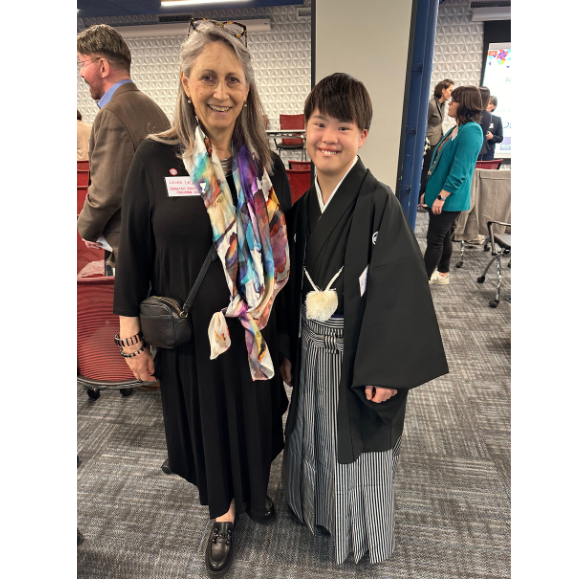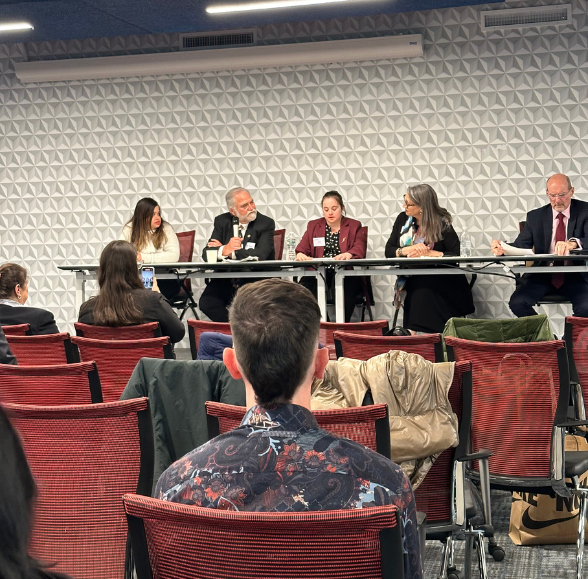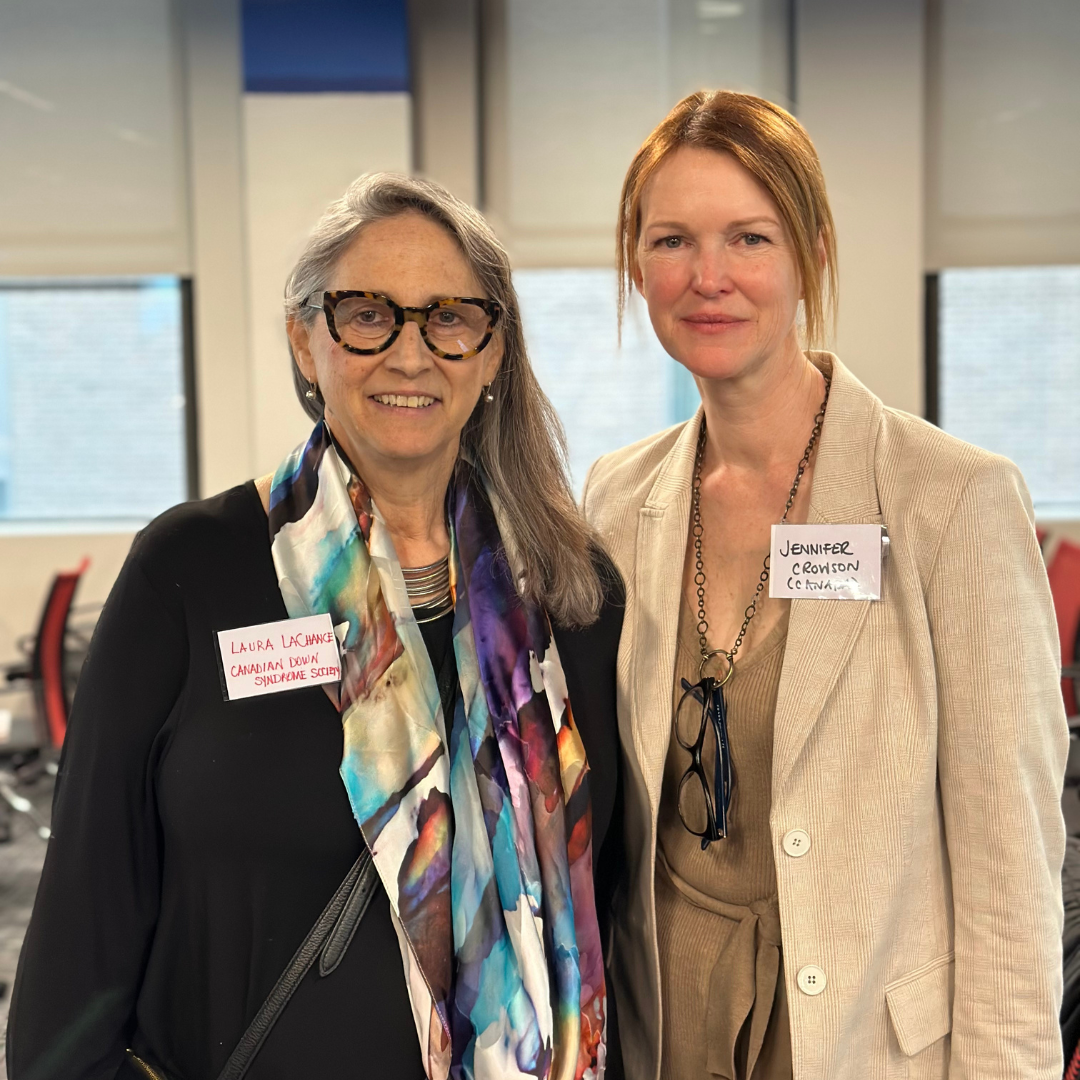Swimmers
CDSS was proud to represent the Canadian Down syndrome community at the 13th World Down Syndrome Day Conference, Achieving health equity for people with disabilities. Many Down syndrome organizations shared the status of health equity in their countries, stimulating engaging conversations about how we can learn from and assist one another as an international community.
Health Equity is about persons with disabilities having the right to the enjoyment of the highest attainable standard of health without discrimination on the basis of disability. It was apparent from the conference discussions that there remains a need for greater international awareness and action to ensure equitable outcomes for individuals with Down syndrome.
What role does our community play in this international effort? Despite Canadians grappling with waitlists, a shortage of trained personnel, and differing funding models in the provinces and territories, our healthcare system is well-regarded worldwide. Many countries aim to emulate our system, and it is our responsibility to help lead the efforts to advance and share leadership regarding health equity to improve the lives of individuals with Down syndrome throughout the world.

CDSS Executive Director Laura LaChance meeting actor Aoi Yoshida during day 1 of the conference.

Moderating the WDSD Conference session Making a Difference and Speaking Up discussing “What are you doing to speak up about health equity in your country?”
Health Equity in Canada
- Through our publicly funded healthcare services, individuals with Down syndrome have access to essential medical care, including preventive screenings, specialized therapies, and treatments for associated health conditions. While there are waitlists, challenges servicing rural communities, and regional shortages of personnel, our healthcare remains predominantly accessible and affordable regardless of one’s socioeconomic status.
- A range of social programs and support services are available and tailored to the needs of individuals with Down syndrome and their families. Early intervention programs provide important support during the developmental stages, offering therapies and resources to optimize cognitive, social, and physical development.
- New resources are being developed for the growing areas of interest in health for individuals with Down syndrome, such as Alzheimer’s disease and dementia. Current and accurate data specific to the Down syndrome community will help to improve the treatments available and provide healthcare professionals with the information they need to provide proper care.
- Our social welfare system includes disability benefits and financial assistance programs aimed at lessening the financial burden and stress on families caring for individuals with Down syndrome. These programs may provide financial support, respite care services, and assistance to help families who are navigating caregiver challenges while responsible for the health and well-being of the individual with Down syndrome.
- With an aging population, there is a growing focus on developing resources and support for caregivers. Canadians with Down syndrome are living longer than ever, and this has created a wave of secondary caregivers who are taking over from aging parents. CDSS is working alongside other organizations to provide support for this essential, unpaid, often overlooked pillar of our healthcare system.
At CDSS, we are committed to creating a more equitable and inclusive society. Canada serves as a model for other countries seeking to enhance support for individuals with Down syndrome. We will continue to lead the progress our community needs, both at home and around the world, through international collaboration, advocacy efforts, resource and program development, community building, and research.
Learn More About Health Equity for People with Disabilities
In 2022, the World Health Organization published a Global report on health equity for persons with disabilities which found that people with disabilities have worse health outcomes than other people – especially people with intellectual disabilities. The report includes a 40-step plan for countries to achieve health equity along with significant global facts. You can read the full report from WHO to learn more.
Share Your Experience: Health Equity Survey
The Down Syndrome International network is working with Humanity & Inclusion to learn more about health equity for people with Down syndrome. You can participate in this Health Equity Consultation by sharing your experience as a person with Down syndrome or caregiver or family member, or by sharing your experience as an organization that works with people with Down syndrome or intellectual disabilities.
World Down Syndrome Award
We were honoured to receive a World Down Syndrome Award for our work with Inployable at the United Nations as part of the 13th Annual World Down Syndrome Conference. Our Executive Director Laura LaChance and Board of Directors Chair Jennifer Crowson accepted the award for our work in the disability employment space connecting jobseekers with Down syndrome to Canadian employers to create more opportunities for paid, meaningful work.



